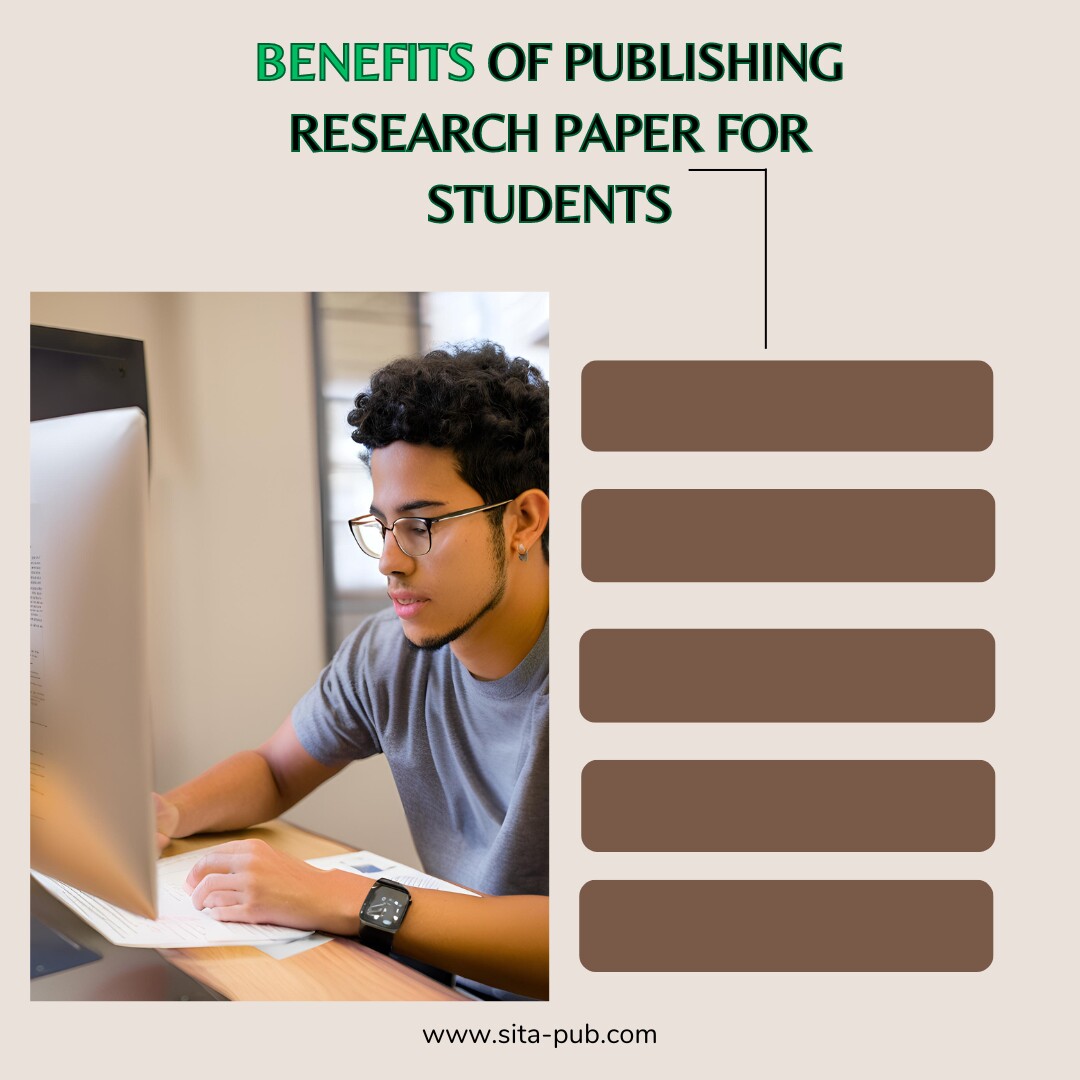Benefits of Publishing Research Paper for Students


Publishing a research paper can seem scary and overwhelming to many students. However, the benefits far outweigh the effort required. These advantages go beyond just getting a good grade; they greatly improve a student’s academic and professional path, opening up many opportunities.

Research Mastery: Participating in research helps improve your critical thinking, analytical, and communication skills. You learn to break down complex ideas, draw meaningful conclusions, and clearly express your findings. These skills are very important in both academic and professional environments, where effective communication is crucial.
Writing Proficiency: Writing a research paper requires strong writing skills. You learn to present your ideas clearly and concisely, use language effectively, and organize your arguments logically. These writing skills are useful in many fields, including academia, business, and law. Being able to communicate well in writing is a valuable asset in any career.
Collaboration and Communication: Research often involves teamwork, working with advisors, peers, and co-authors. This experience helps you develop essential collaboration and communication skills, which are important for success in any team-based setting. Learning to work well with others is key, as most workplaces value teamwork.

Standing Out: One major benefit of publishing is that it shows your commitment to scholarship. It sets you apart from your peers by demonstrating that you are actively contributing to knowledge in your field. This proactive approach can leave a strong impression on teachers and future employers.
Creating a Portfolio: A published paper adds significant value to your academic portfolio. It highlights your research skills, curiosity, and dedication to your field. This portfolio can be essential when applying for jobs or further academic programs, showcasing your achievements.
Gaining Recognition: Publishing can lead to invitations to conferences, presentations, and awards. This recognition improves your academic reputation and creates networking opportunities that can help your future career. Being acknowledged for your work can boost your confidence and inspire you to continue your research.

Graduate School Applications: A published paper can greatly enhance your application to graduate programs. It showcases your research skills, dedication to your studies, and ability to contribute to your field. Admissions committees tend to favor candidates who have shown their research capabilities through publication.
Career Growth: In many careers, having publications is important for advancement. It highlights your expertise and research contributions to potential employers. Many organizations prefer candidates with a history of research and publication, as it shows initiative and a commitment to professional growth.
Networking Opportunities: Publishing your research connects you with other researchers in your field. This connection helps you build relationships with mentors, collaborators, and colleagues, leading to professional growth and career opportunities. Networking is essential for career advancement, and having a published paper can serve as a great conversation starter.

Sharing Your Findings: Publishing your research lets you share your results with a wider audience, helping advance knowledge in your field. This sharing is essential for the ongoing growth of research and understanding in your discipline.
Inspiring New Ideas: Your work can generate new ideas and encourage further research, enhancing the academic discussion. By sharing your insights, you may inspire others to explore new areas of inquiry, leading to exciting developments in your field.

Confidence Boost: Completing and publishing a research paper gives you a sense of achievement and increases your confidence in your abilities. It reflects your hard work, dedication, and intellectual skills. This boost in confidence can lead to greater self-assurance in your academic work and beyond.
Intellectual Growth: Engaging in research expands your knowledge and enhances your critical thinking. It encourages you to explore new ideas, question assumptions, and deepen your understanding of your field. This intellectual growth supports personal development and helps you gain a more nuanced view of the world.
In summary, publishing a research paper as a student is a valuable investment in your future. It helps you gain important skills, contribute to knowledge, and establish yourself as an emerging scholar. This journey can lead to many exciting opportunities and a rewarding academic and professional career. Embracing the challenge of publication can greatly influence your educational experience and career path.
If you're ready to publish your research paper, we can help!
Contact us to receive a list of suitable journals that align with your work. We offer access to open access, peer-reviewed journals with high impact factors, recognized in reputable databases like Scopus, Web of Science, and PubMed. Let us assist you in taking the next step in your publishing journey and ensure your research reaches a wider audience.

If you have any questions, inquiries, or would like to learn more about our services, please don't hesitate to reach out to us. Our dedicated team is ready to assist you.